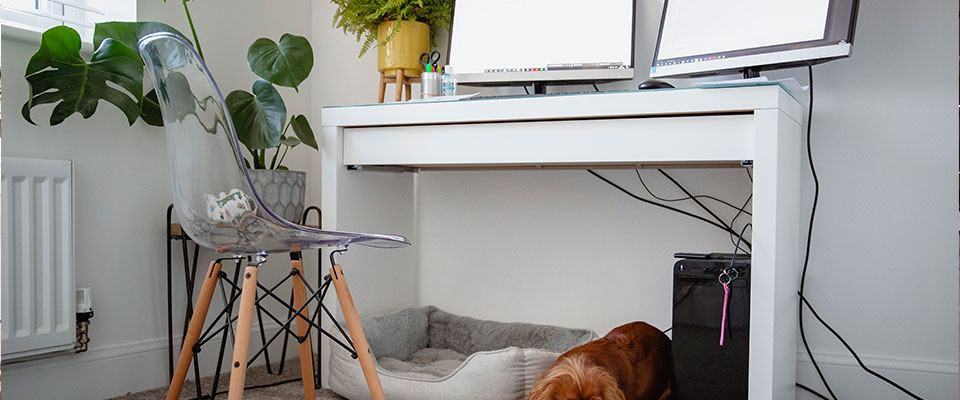Homeworking allowance
The homeworking allowance was increased at the Spring Budget from £4 to £6 a week (or £26 a month) with effect from 6 April 2020. An employer can pay this fixed sum, tax-free and NIC-free, to meet the additional costs an employee incurs working at home under homeworking arrangements.
Homeworking arrangements mean an agreement between the employer and employee (ideally in writing) under which the employee works at home regularly as part of their job, not just informally at weekends or evenings.
During the coronavirus pandemic, HMRC will accept that employees working from home because their employer’s offices have closed – or because the employee is following advice to self-isolate – meet these requirements. Newly home-based employees will be eligible to receive the allowance tax free from the date that their employer agreed they could work from home, or from when government advice was announced.
An employer can pay more than £6 a week, provided there is evidence to support the additional costs incurred. Otherwise any excess will be subject to income tax and NIC. The alternative of an employer agreeing a bespoke scale rate with HMRC is currently improbable.
Additional costs which can be reimbursed include the increased cost of heat, light, insurance, water and telephone or broadband, but not fixed costs such as mortgage interest, rent or water rates.
To be reimbursed tax-free, the employee’s costs must have increased as a result of home working. For example, an employee who is already paying for broadband cannot claim reimbursement for their internet costs simply because they are now working from home. But if they didn’t previously have internet access and now require it, that will be an additional cost.
Homeworking relief
Where an employer is unable or unwilling to pay the homeworking allowance – or to reimburse in full the employee’s extra costs – can the employee get tax relief for the costs of homeworking?
While there is a specific provision in ITEPA 2003 s 316A for the homeworking allowance, tax relief for homeworking costs is only available under the much stricter general provisions of ITEPA 2003 s336. Costs must be incurred wholly, exclusively and necessarily for the employee’s work.
HMRC will accept that these conditions are met if the employee’s home is a workplace. To be a workplace, the employee’s homeworking must meet four criteria, including that there is no place for them to work at their employers premises and that the employee wasn’t able to choose between working at home or in the office at any time during their contract.
Given the current situation, it is likely that HMRC will accept that an employee can’t work from their employer’s premises, but we haven’t seen definitive confirmation that HMRC will accept that the further condition of lack of choice over working arrangements has been met.
If the four conditions are met, the employee can claim relief for household expenses including:
- Heating and light for the working area
- Metered cost of water used in the performance of duties
- Unit costs of telephone calls
Where a claim is possible, an employee can either keep records and claim relief for their actual costs or claim a fixed amount of £6 a week or £26 a month (£4 a week or £18 a month prior to 6 April 2020) – with an additional claim for the cost of business calls on top.
An employee can make a claim online, by phone, by post or, if they are registered for self-assessment, through their tax return. HMRC has a handy tool to help guide employees to the best approach for them.
Office furniture and computer equipment
Many new homeworkers will have realised by now that working solely on a laptop is intolerable for long periods. Some may have purchased additional monitors, keyboards and even desks and chairs.
If the employer has purchased and provided the necessary equipment then, provided there is no significant private use, no taxable benefit in kind arises. However, if the employee has purchased equipment personally, then any subsequent reimbursement will be to be taxable on the grounds that it is difficult to pass the ‘necessarily’ test. This will be an unwelcome outcome but as yet HMRC has not indicated any proposed relaxation of this position.
Employees will also struggle to obtain relief under capital allowances so employees and employers should consider their position before purchasing equipment.
One solution could be for the employer to pick up any tax bill resulting from the reimbursement by including it in a PAYE Settlement Agreement.

